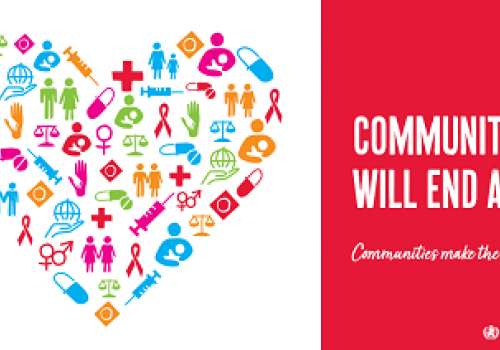Today, 1st December 2019, SADC joins the International Community in commemorating the World Aids Day. The day was founded in 1988 to provide an opportunity for people worldwide to unite in the fight against HIV, to show support for people living with HIV, and to commemorate those who have died from AIDS-related illnesses.
This year, the World AIDS Day will be commemorated under the theme "Communities make the difference". The theme is intended to recognize the critical role that communities have played and continue to play in helping to deliver HIV services, raising awareness and, more importantly, in the advocacy to ensure an enabling environment for a robust and inclusive HIV and AIDS response.
Almost four decades ago, the International Community joined efforts to fight HIV and AIDS. Since then, important milestones have been achieved, and HIV has become more manageable. Today, more people are aware of their HIV status and more People Living with HIV (PLHIV) are on treatment, and have a suppressed viral load, while leading healthy and productive lives.
There is need to consolidate the gains made over the last couple of years by, among others, scaling-up interventions aimed at attaining the targets as spelt out in the United Nations Agenda 2030 on the Sustainable Development and the Universal Health Care (UHC) 2030 targets. There is also need to continue to scale up interventions aimed at attaining the HIV Fast Track targets of 90-90-90 by the year 2020. This is a commitment to have, by 2020, 90 per cent of all people living with HIV know their HIV status; 90 per cent of all people diagnosed with HIV infection to receive sustained antiretroviral therapy; and 90 per cent of all people receiving antiretroviral therapy to have viral suppression. These targets will require collective efforts that ensure inclusivity of key and vulnerable populations.
In line with the Maseru Declaration on the Fight Against HIV and AIDS, SADC has continued to make progress and re-iterates its commitment to work with all stakeholders, including the civil society, non-governmental organizations, the private sector, international institutions, cooperating partners and the media, to deliver key interventions such as HIV prevention, treatment, care and support, as well as to generate evidence-based interventions through HIV research. This is to be coupled with innovative means to mobilise domestic resources aimed at bridging the widening funding gaps in the HIV and AIDS prevention and response programmes.
As we commemorate the World AIDS Day, may I call upon SADC Member States and the International Community to continue to make sustained efforts to combat HIV and AIDS, in order to reverse the negative impacts that this scourge has on the wellbeing and livelihoods of our communities.

